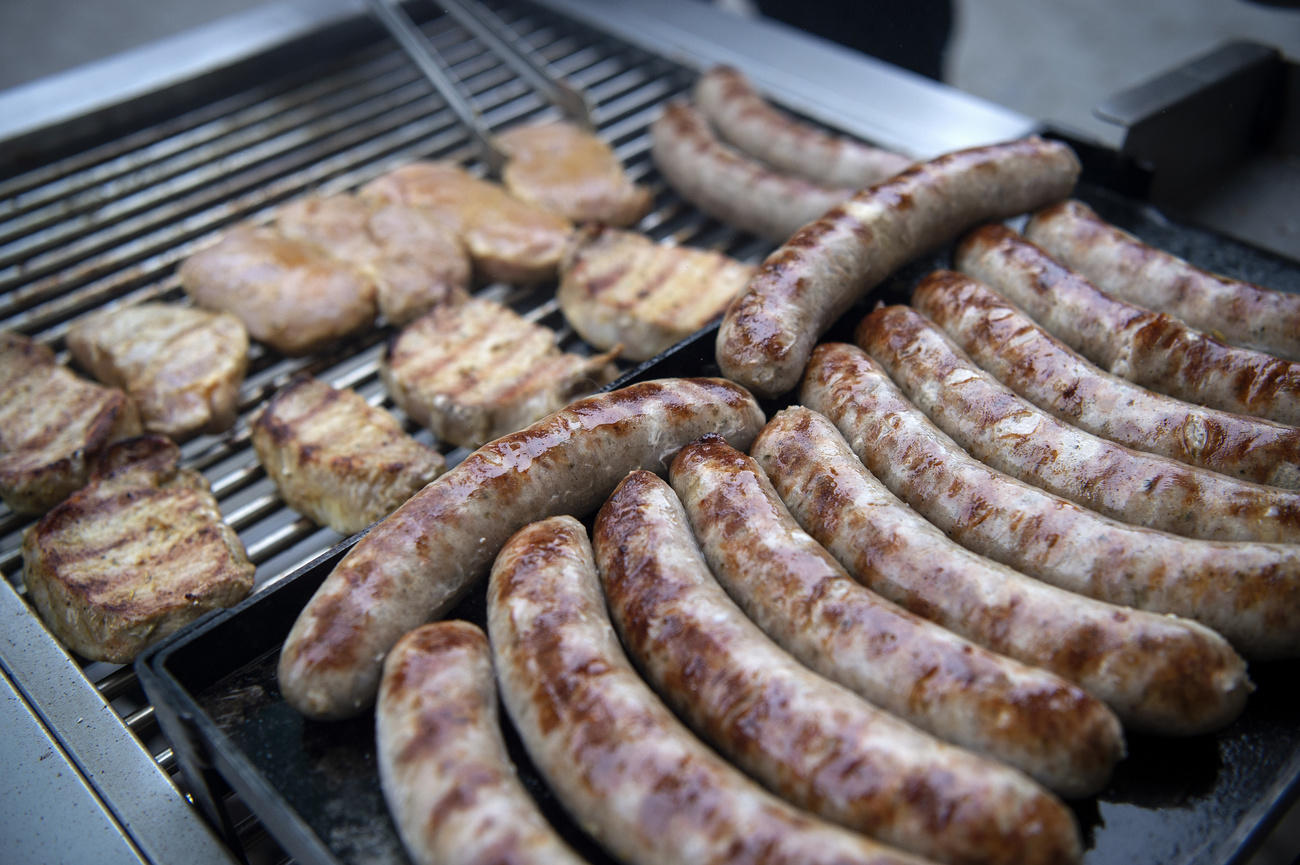
Majority prefer Swiss meat and eggs, according to survey

More than half of Swiss residents prefer meat produced in the country, according to a survey published on Thursday. The number of Swiss farms continues to fall but overall turnover is up across the agricultural sector.
For Swiss eggs, the percentage is even higher – 75% of the population – said the report by the research institute Demoscope on behalf of the Federal Office for Agriculture.External link
The reasons are multiple, the authors said. Around a quarter of people buy domestic farm goods to show their support for Swiss farmers, while 15% of respondents say the quality and sustainability of the products are most important.
The annual report showed that Swiss meat production increased by 4,500 tonnes in 2018 compared to 2017 to 365,130 tonnes. Pork remains the most popular meat in Switzerland (177,000 tonnes), followed by beef (82,000 tonnes) and poultry (78,000 tonnes).
In total, Swiss farmers raised some 1.54 million head of cattle last year, while the overall number of pigs decreased to 1.42 million. Dairy production, which represents nearly 20% of all agricultural production, remained stable.
A total of 50,852 farms were registered across the country last year, a decrease of 1.5%. But turnover was up by 5.2% across the farming sector to CHF 3.2 billion, or CHF70,600 per farm (+4.1%).
The number of people working in the farming sector also fell to 152,442 (-0.9%). Since 2000, there are 50,000 fewer people working in the agriculture sector. In 2018, 3,157 farms were run by women (6.2%).
However, the area of productive farmland in Switzerland remains stable (1 million hectares). Since 2000, there has been a small decrease of 27,500 hectares or 0.1% per year.
The report said 55% of Swiss farmland does not use pesticides. The area allocated to arboriculture and wine-growing, which is pesticide-free, has doubled in 2018, it added.

More
Meat in Switzerland costs 2.3 times the EU average

In compliance with the JTI standards
More: SWI swissinfo.ch certified by the Journalism Trust Initiative

























You can find an overview of ongoing debates with our journalists here . Please join us!
If you want to start a conversation about a topic raised in this article or want to report factual errors, email us at english@swissinfo.ch.